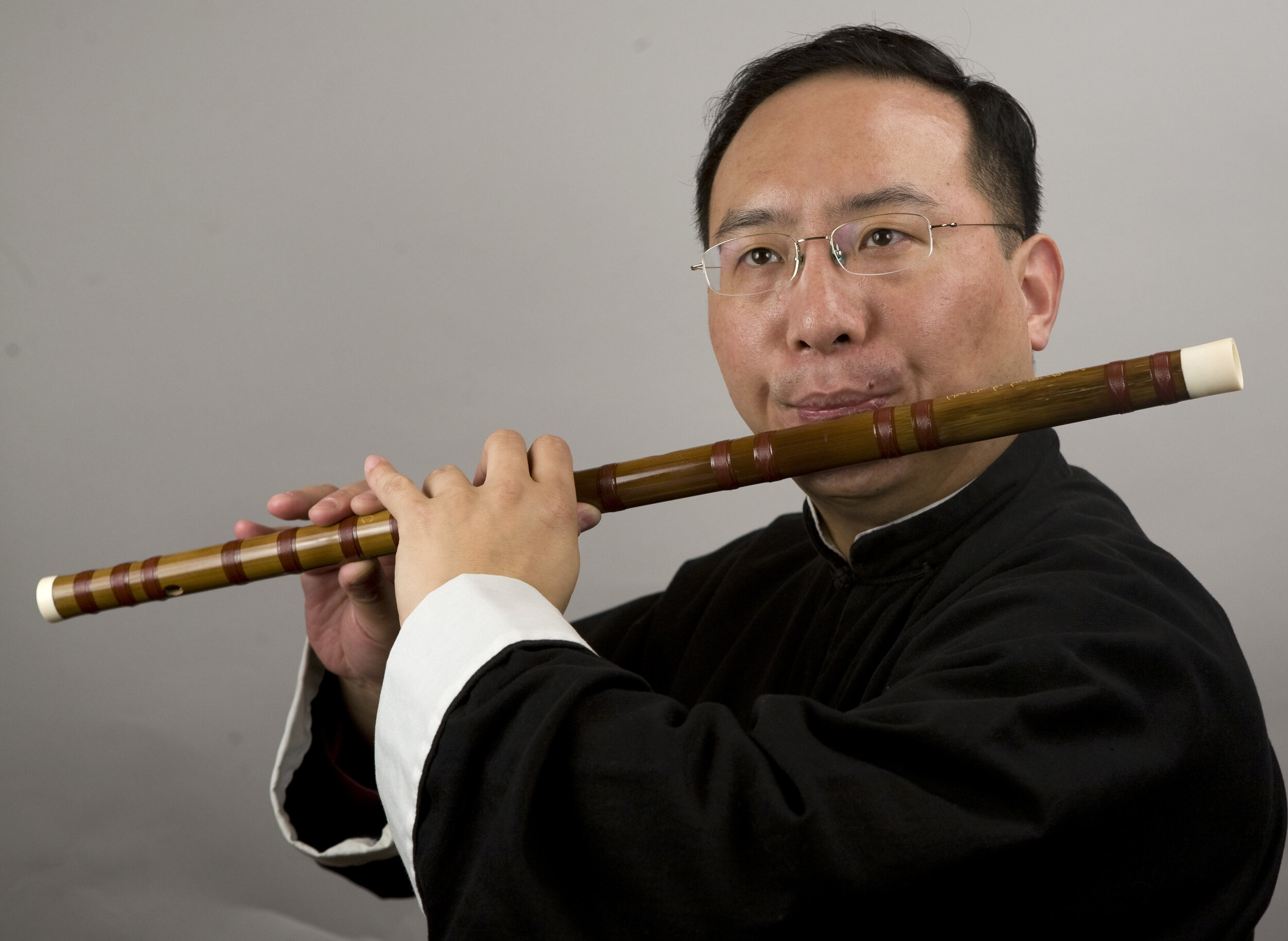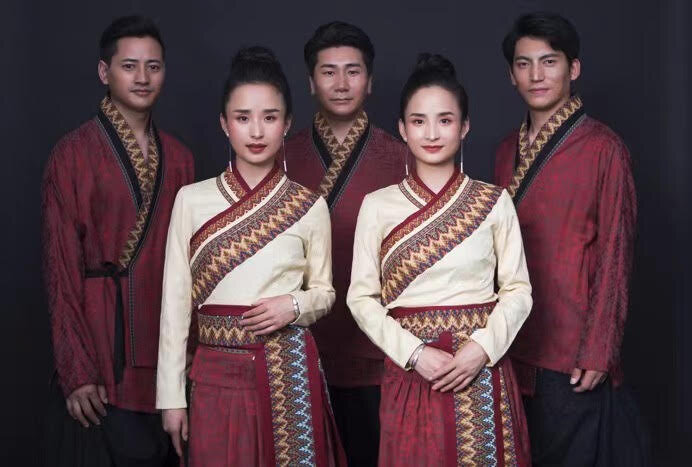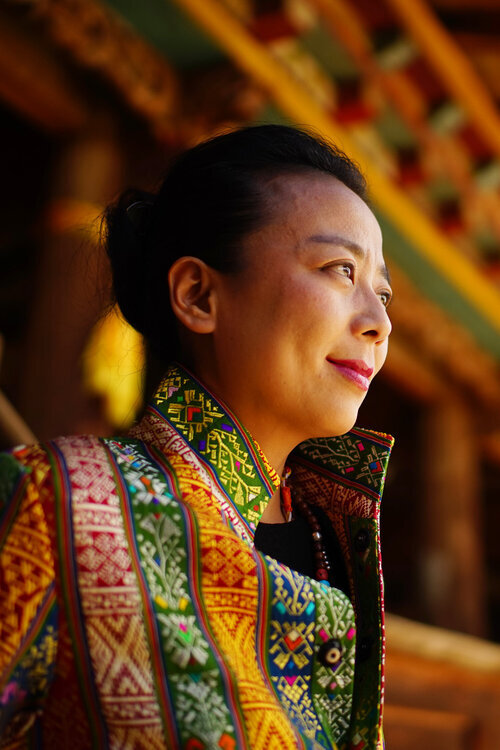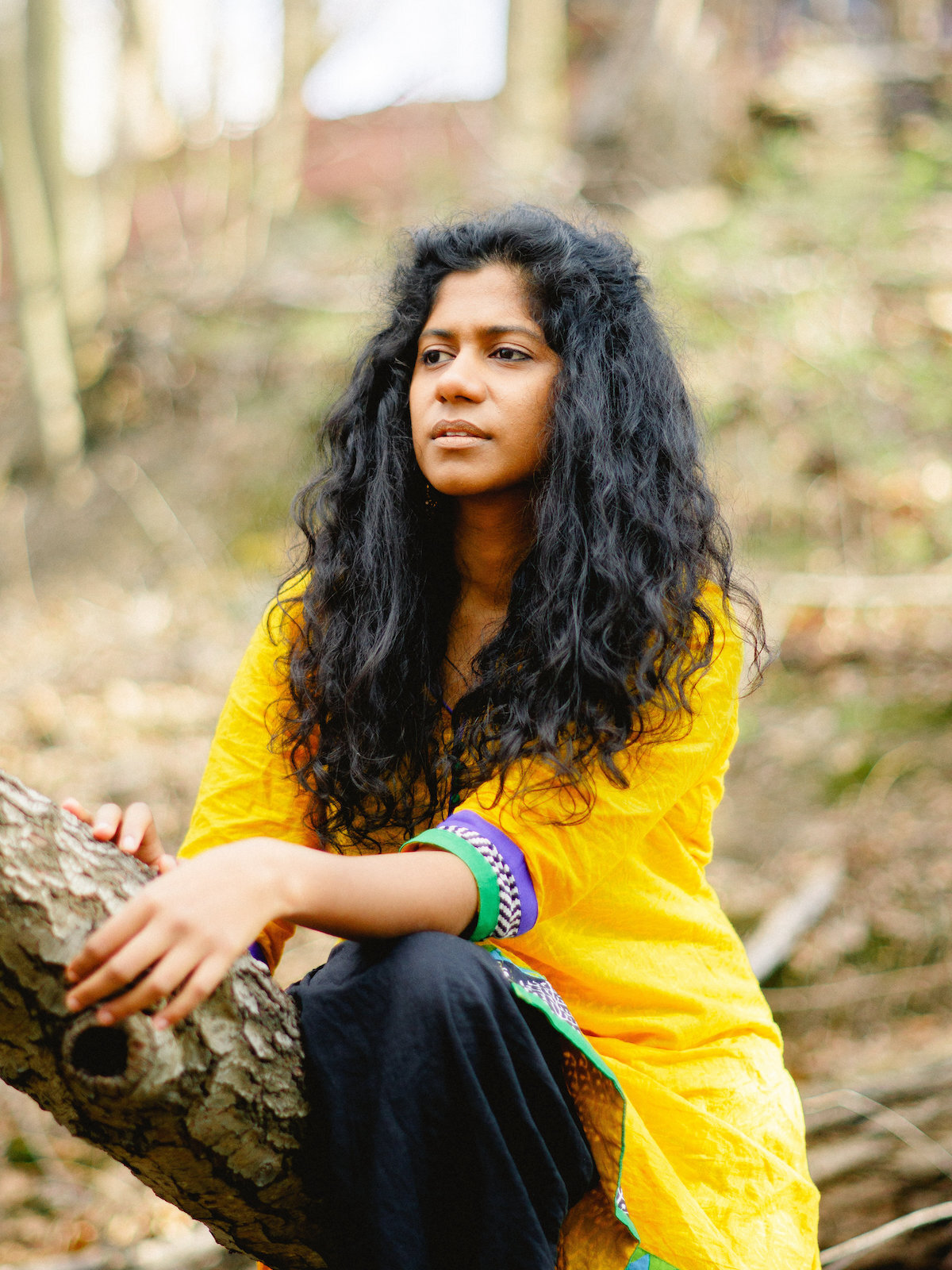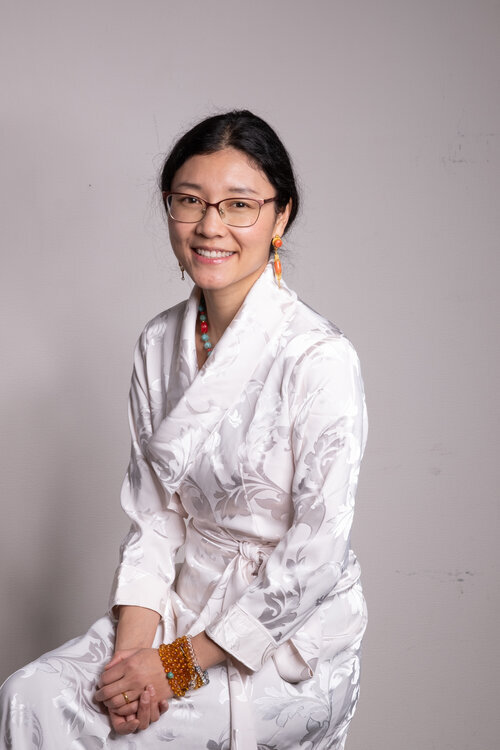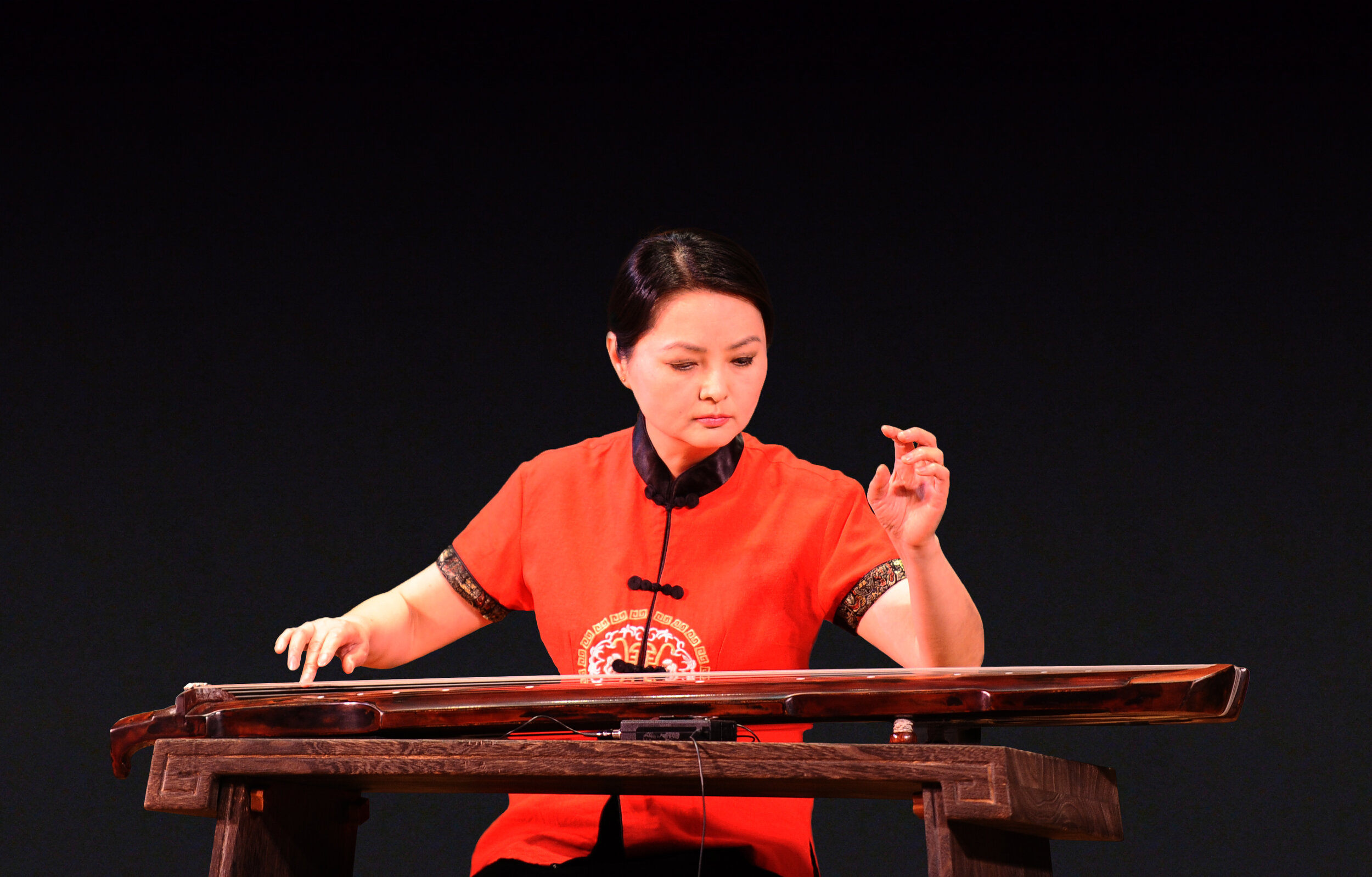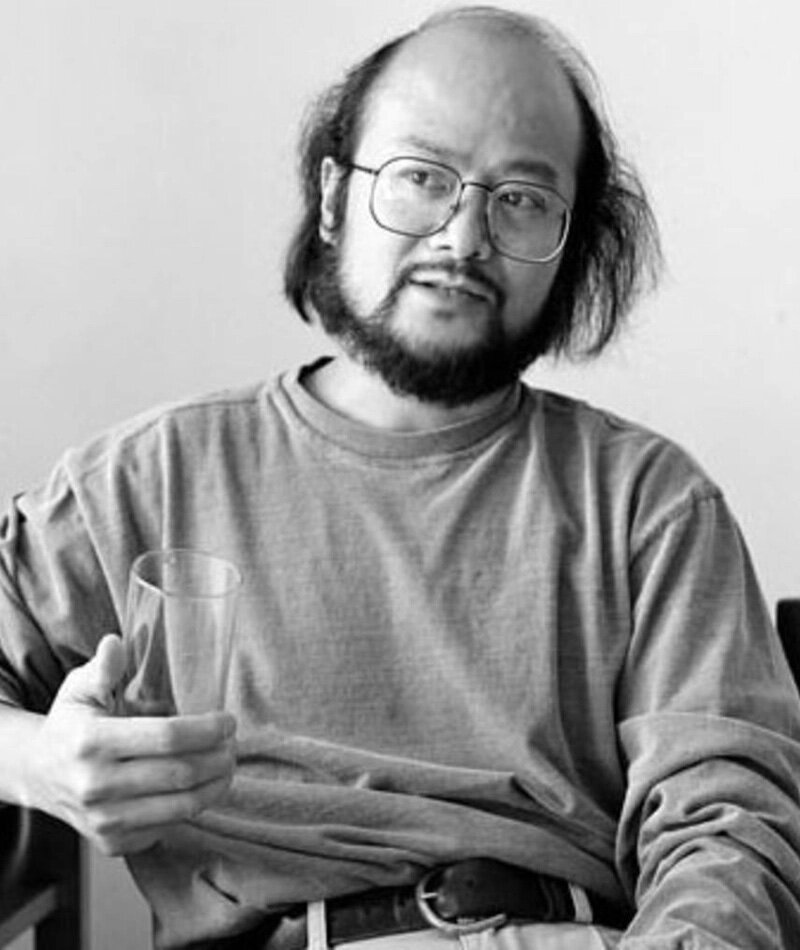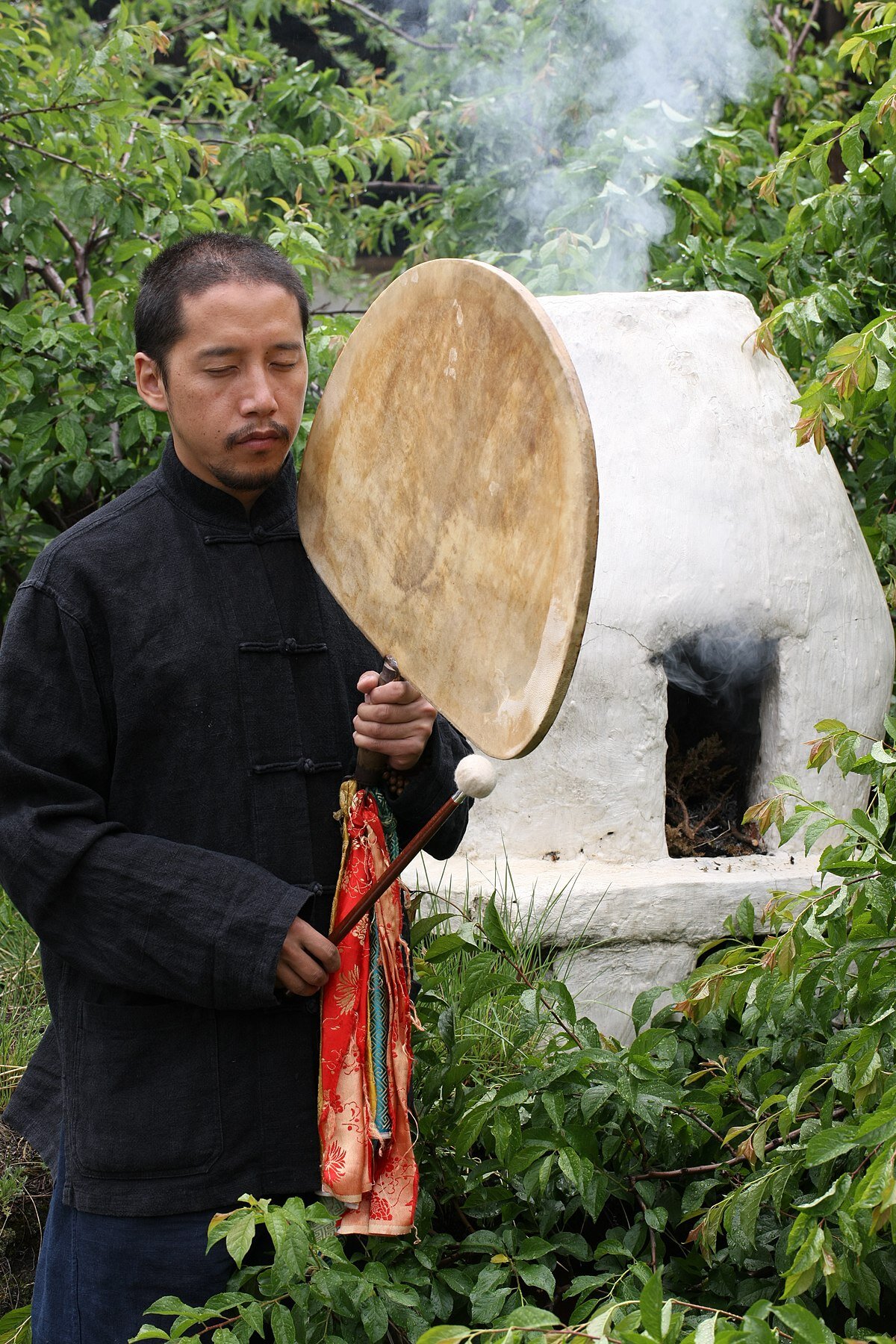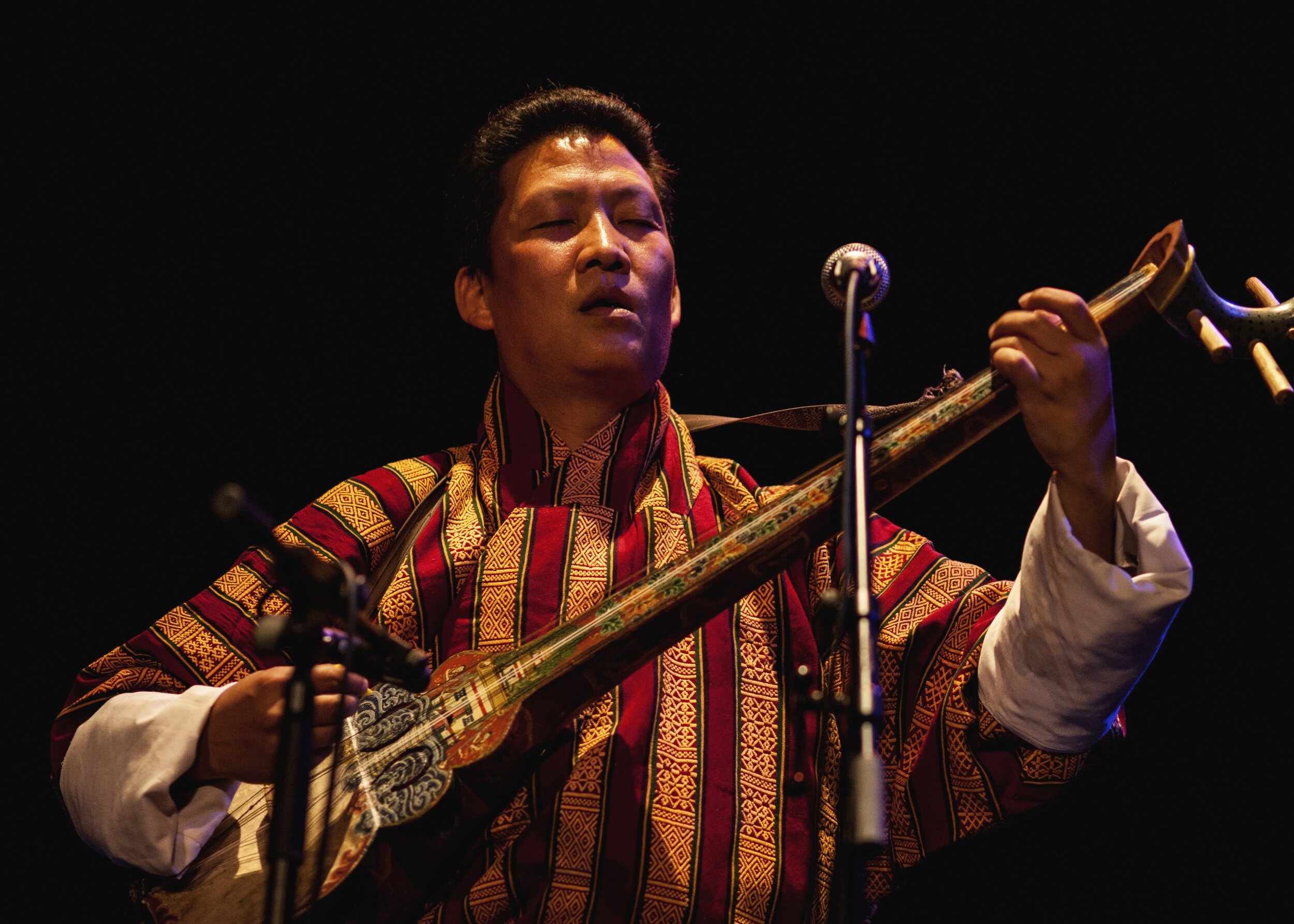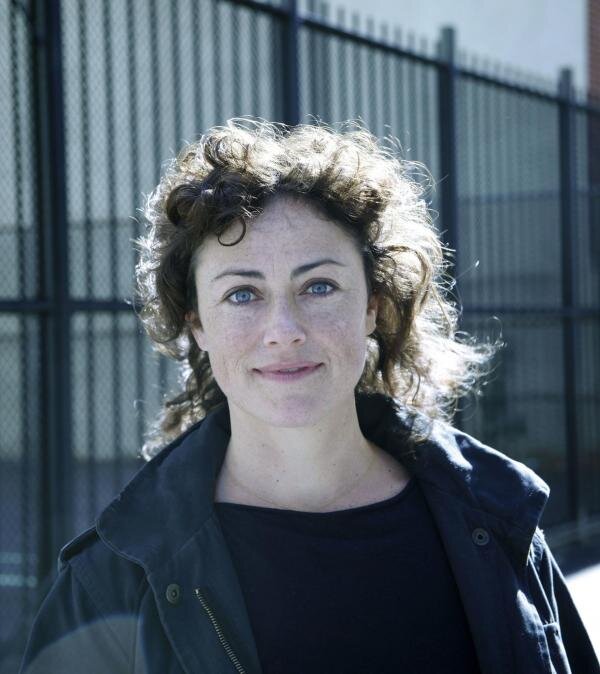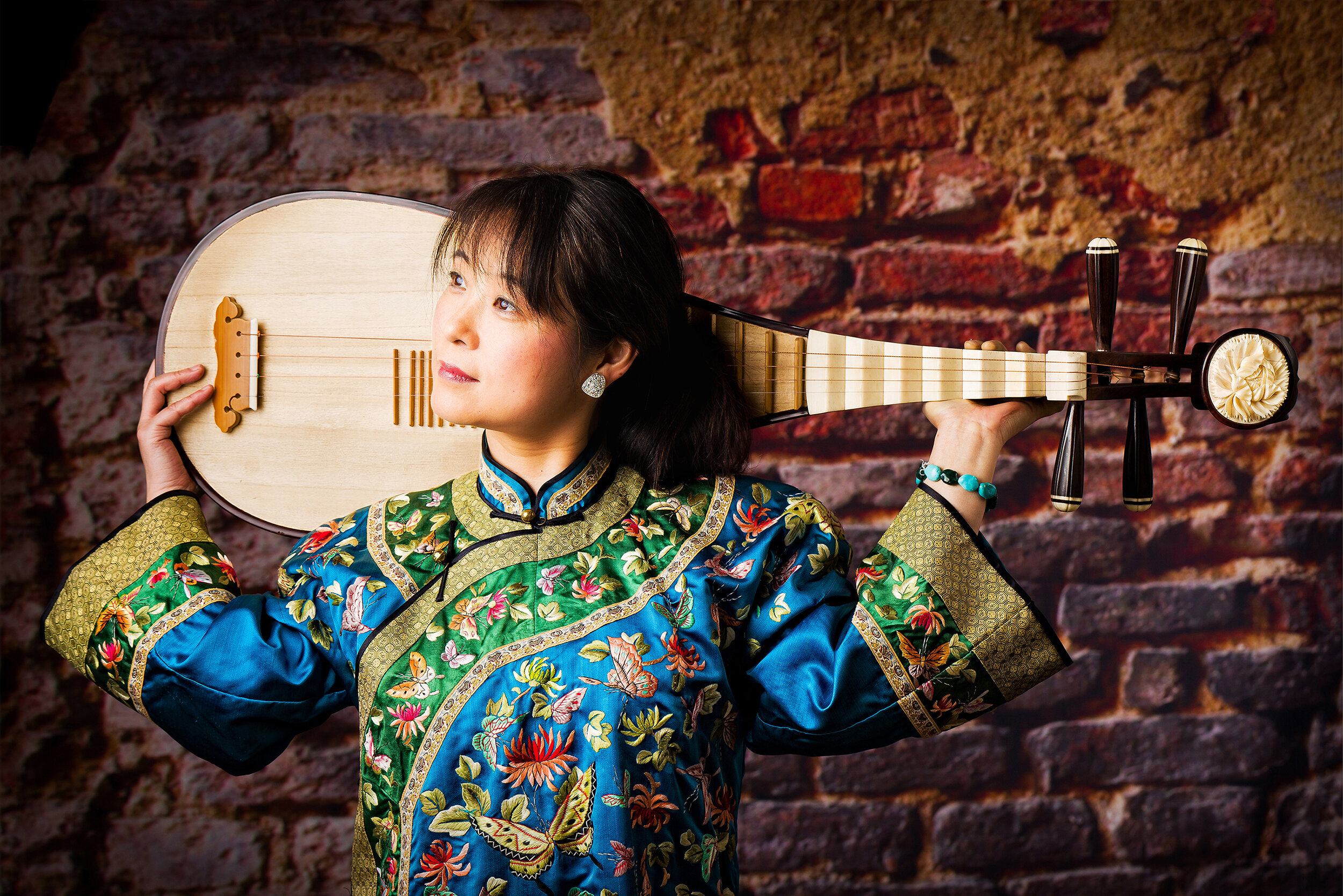an online conference and concert series
April 8 to april 10, 2021

day 2 - friday, APRIL 9
Entering the World, the Path of Music

Seated Guanyin Bodhisattva
(late 14th-early 15th century)
Walters Art Museum. Photo: public domain
Day two of Harmony and Compassion focuses on the varied ways that Buddhist teachings inspire individual musical practice, imagination, and creativity.
The afternoon session features a diverse group of scholars and musicians appearing live or on video via Zoom Webinar. The conference continues with a series of performances, some created for this conference, featuring a wide array of new and traditional music inspired by Buddhist teachings.
Previously recorded event videos posted below.
panel discussion
Moderated by
Dominique Townsend
Professor of Religious Studies, Bard College
Introduction — On Creative Practice in Buddhist Traditions
Dominique Townsend
Live Presentations —
Jamyang Dolma, Founding Director, Academy of Himalayan Art and Child Development
Ganavya Doraiswamy, singer
Drukmo Gyal, singer
Video Presentations —
Tan Dun, composer; Dean, Bard College Conservatory of Music
On composing the Buddha PassionSonam Dorji, musician; Director, Music of Bhutan Research Centre
A life of music in Bhutan
performance
sounds of inspiration and imagination
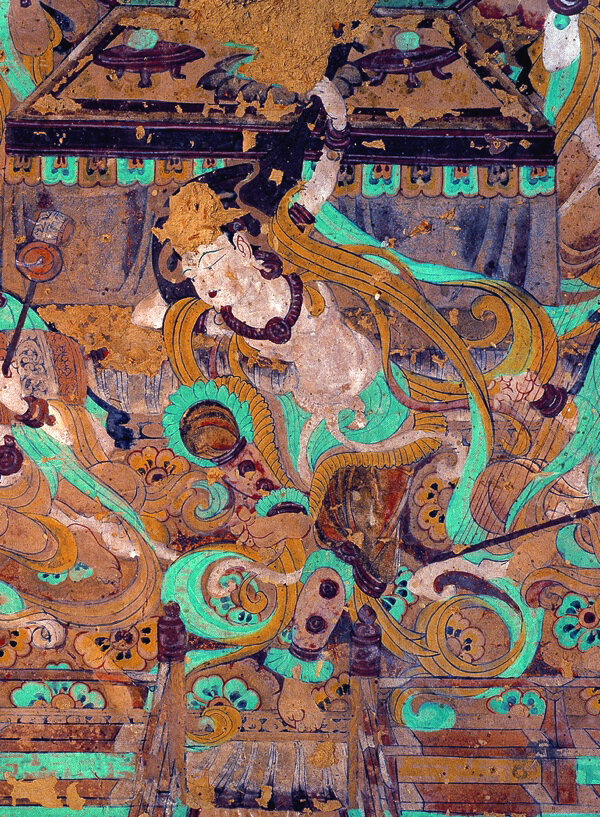
A Scene of Music-making from the ancient cave paintings in Dunhuang, China.
Image: public domain
tibetan chant - interpretations
Reshi Tsering Tan, singer
Drukmo Gyal, singer
Joy Conch, musical group
arrangements of traditional music
Incantation of the Monk Pu’an
for Guqin & Xiao
Liu Li, guqin; Chen Tao, xiao
Incantation of the Monk Pu’an
for Pipa
Wu Man, pipa
Buddha in the Temple
arr. Chen Tao
Chen Tao, dizi; Sun Waiki, zhongruan; Xu Xinyi, guzheng; Petra Elek, percussion
buddhist works of contemporary composers
Qu Xiaosong
An Ancient Melody
for String Quartet
Students of the Bard Conservatory of Music:
Shaunessy Renker, violin; Sarina Schwartz, violin
Rowan Swain, viola; Sarah Martin, cello
[LIVESTREAM ONLY]
Tan Dun
Buddha Passion, Movement 2, “The Deer of Nine Colors”
Orchestra National de Lyon
International Choir Academy Lübeck
about today’s participants
Chen Tao is a Visiting Professor of Chinese Music at the Bard College Conservatory of Music. He is an internationally acclaimed Chinese flutist, music educator, composer, and of Chinese orchestra; founder and director of Melody of Dragon, Inc., and of Melody of Dragon & the Youth; artistic director and conductor of the Chinese Music Ensemble of New York and conductor of New Jersey Buddha’s Light Youth Chinese Orchestra; director of New York Guqin Association; and executive chairman of the New York Chinese Music Instruments International Competition since 2015. He is also a 27th-generation musician of Zhi-Hua Buddhism music. On the faculty of Bard’s US-China Music Institute, Chen Tao teaches dizi and directs the Conservatory’s Chinese Ensemble. Read more here.
Joy Conch is an ensemble of musicians studying under Reshi Tsering Tan, who is also contributing to this conference. Their blending of Tibetan and Western musical instruments and styles is both innovative and beautiful. Here is the group roster:
主唱:泽旺 lead singer: Wangze
鼓手:仁青 drum: Renqing
吉他:扎德 Gita: Zhade
女主唱:才吉 Female vocal: Caiji
女主唱:李毛 Female vocal: Limao
Jamyang Dolma has dedicated her life to preserving traditional culture and questioning the nature of a good education. Her experience working in more than 20 countries, in fields as diverse as public communication, management consulting, and marketing for International business and government institutions, has taught her that preserving traditional culture and art is key for the success of the next generation. Since 2001 she has been studying with Buddhist masters from the Tibetan Region and Bhutan. She began leading field recording trips to preserve disappearing folk music and working with educators from around the world to develop music education curricula for children. She is also working to preserve traditional handicrafts, particularly weaving, and to create a sustainable fashion line. Dolma’s unique life experience, along with her passion and compassion, led her to found Academy of Himalayan Art and Child Development with people who have similar philanthropic desires and appreciation of ancient philosophy and arts. Dolma now serves as the President of the organization and is in charge of leading the efforts to promote and fund the organization's missions.
Tamil Nadu-raised and New York-born critically acclaimed vocalist Ganavya lives, learns, and loves fluidly from the nexus of many frameworks and understandings. Hers is a deeply profound and rooted voice. A multidisciplinary creator, she is a soundsmith and wordsmith. Trained as an improviser, scholar, dancer, and multi-instrumentalist, she maintains an inner library of “spi/ritual” blueprints offered to her by an intergenerational constellation of collaborators, continuously anchoring her practice in pasts, presents and, futures. Much of her childhood was on the pilgrimage trail, learning the storytelling art form of harikathā and singing poetry that critiques hierarchal social structures. She is a co-founder of the non-hierarchical We Have Voice Collective.
A film made during the pandamic titled this body is so impermanent... (2021) directed by her close collaborator Polar Music Awardee Peter Sellars, features Ganavya (composition, solo voice), legendary calligrapher Wang Dongling, and acclaimed dancer Michael Schumacher (choreography, dance). The piece was created over a 6-month intensive collaborative period, where Ganavya worked from the rural mountains of Oregon, Michael from Amsterdam, Peter from LA, and Wang Dongling from China. The film was co-produced by Fisher Center at Bard College with The Boethius Initiative at UCLA.
Drukmo Gyal (འབྲུག་མོ་རྒྱལ ) was born in the Northeastern part of Tibet into a the family of a Tibetan yogi (Tib. སྔགས་པ Ngakpa), where mantra and meditation were introduced at a young age. With support from her local Tibetan yogic community and family, she started singing publicly starting in 2008. She moved to Europe in early 2014 in order to work with Sorig Khang International - an NGO to preserve traditional Tibetan medicine and Tibetan spiritual healing, which was founded by Dr. Nida Chenagtsang. During her time in the west, she published 5 albums of Tibetan Healing mantras and chants with musicians from all over the world. She has also travelled to more than 30 countries giving concerts, public talks, workshops and courses on Healing mantras, yoga, and meditation as well as Tibetan External Therapies derived from traditional Tibetan medicine. One of the primary focuses of all her activities is helping people to find spiritual equality and balance, and helping mothers and children to view each other with divinity and compassion through the scope of Tibetan Spiritual healing and Buddhist practices.
Liu Li is a guqin virtuoso, educator the president of the New York Guqin Association. Since she moved to America in 1994, Liu Li has been invited frequently to perform and lecture throughout the country. Her collaboration with the New Music Consort of the Manhattan School of Music's Chamber Orchestra received high praise from the critics. She has also performed at Lincoln Center, New Jersey Performing Arts Center, Japanese Society, La Mama Theater, the Metropolitan Museum of Arts and other New York venues. In February 1996, inviting by Taiwan's National Music Ensemble in Taipei, Liu Li held a concerto performance in the National Hall of Music as well as a lecture on Guqin music, both of which were critically acclaimed. In 2002, she collaborated on the movie music recording of “Hero” composed by Oscar winner Tan Dun with world famous Violin master Itzhak Perlman. Read more here.
Qu Xiaosong is one of the most avant-garde of the New Wave composers. During the Cultural Revolution, Qu was sent to the mountainous countryside as a farmer for four years. He taught himself to play the violin in 1972, and a year later joined the Guiyang Beijing Opera Troupe as a violist. When the Central Conservatory reopened in 1978, Qu, along with Chen Yi, Zhou Long, Tan Dun and Chen Qigang, was accepted in the composition class. While at the Conservatory, Qu studied with Du Mingxin and graduated in 1983. In 1989, at the invitation of Columbia University’s Center for US-China Arts Exchange, Qu moved to New York, where his international fame grew.
Early works, such as Mong Dong, were experiments with sound. Qu has an affinity for nature, intent on returning the concept of Chinese music to its most pristine form. His stage work, Life on a String (Ming ruo qinxian, 1998), is sung in the Sichuan dialect, because Qu appreciates the dialect’s latent musicality, similar to his native Guizhou.
His Fi [Silence] series explores the minutest sonic shades. Ji No. 4 ‘Kou’ (2001) was scored for a septet, but the volume of any performance of this work is intentionally low. Qu is a very theatrical composer, sometimes performing as vocalist and conductor himself in Europe, America and Asia.
Reshi Tsering is a Tibetan artist and social entrepreneur from China. He is a dedicated scholar-practitioner of Tibetan Buddhism and the Founder and President of Shangri-La Folk Music Preservation Association. He started his organization after years of traveling and interviewing musicians throughout the Himalayas. He realized that many genres, songs, choreographies, and other cultural elements that are typically passed down orally are at risk of being lost due to globalization and migration to cities. His unique music style and his outstanding contributions in Tibetan cultural preservation have been the focus of both national and international media attention, such as National Geographic Magazine, Phoenix TV, the Travel Channel, and China Youth Daily, among others.
Tsering serves as the Artistic Director for Academy of Himalayan Art and provides counsel and artistic input to their folk music programs. He works as coach and teacher specializing in the healing through music and sound and the importance of preserving and learning from traditional art and culture.
Sonam Dorji was born in the rural village of Kaktong, in Bhutan’s Zhemgang District. His passion for music was inspired by his mother, who died while he was a child.
He took up and mastered the dramgyen (Bhutanese lute), studying under the primary elders of the Bhutanese folk tradition. Kheng Sonam Dorji is a master musician; he is also the first to compose and sing a Khengpa modern song, earning him the title of Kheng Sonam Dorji. International audiences know Sonam through his soundtrack contributions to the acclaimed Bhutanese film, Travelers and Magicians (2004), and his appearances at the Smithsonian's Festival of American Folklife (2008). In 2012, Sonam participated in the Asian Age stage during the Olympic Games in London, England. Sonam has travelled throughout Europe giving lectures, presentations and performances. In addition to being Director of the Music of Bhutan Research Centre, he is also the Liaison Officer for Bhutan, a registered member under the umbrella of the ICTM (International Council for Traditional Music), and a member of ISME (International Society for Music Education) for Bhutan.
The world-renowned artist and UNESCO Global Goodwill Ambassador Tan Dun, has made an indelible mark on the world’s music scene with a creative repertoire that spans the boundaries of classical music, multimedia performance, and Eastern and Western traditions. A winner of today’s most prestigious honors including the Grammy Award, Oscar/Academy Award, Grawemeyer Award, Bach Prize, Shostakovich Award, and most recently Italy’s Golden Lion Award for Lifetime Achievement, Tan Dun’s music has been played throughout the world by leading orchestras, opera houses, international festivals, and on radio and television. Most recently, Tan Dun was named as Dean of the Bard College Conservatory of Music. As dean, Tan Dun will further demonstrate music’s extraordinary ability to transform lives and guide the Conservatory in fulfilling its mission of understanding music’s connection to history, art, culture, and society. Read more here.
Dominique Townsend is Assistant Professor of Buddhist Studies at Bard College in Annandale on Hudson, NY. Her primary research interests include Tibetan Buddhist history, aesthetics, cultural production, poetics, and translation theory. Columbia University Press will release her first scholarly monograph, A Buddhist Sensibility: Aesthetic Education at Tibet’s Mindröling Monastery, in March 2021. She is also a poet and published a book of poems called The Weather & Our Tempers with Brooklyn Arts Press in 2013. She has an MTS from Harvard Divinity School and a PhD from Columbia University. Read more here.
Recognized as the world’s premier pipa virtuoso and leading ambassador of Chinese music, Wu Man has carved out a career as a soloist, educator, and composer, giving her lute-like instrument—which has a history of over 2,000 years in China—a new role in both traditional and contemporary music. Through numerous concert tours Wu Man has premiered hundreds of new works for the pipa, while spearheading multimedia projects to both preserve and create awareness of China’s ancient musical traditions. Read more here.


